Derek Thompson's Blog, page 26
July 10, 2012
Beating the odds
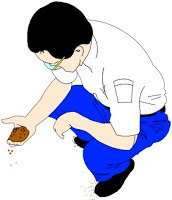 Key inventions that changed the world.
Key inventions that changed the world. No 24: The pooper scooper. All freelance writers have a perennial set of challenges to get their heads around:
- Writing content to order.- Meeting deadlines.- Revising work where requirements have changed or were less than...ahem...fully defined.- Establishing which rights are being sold and who owns the work.- Agreement on bylines and back links.- Getting the client's sign-off.- Getting paid.- Getting a testimonial or recommendation.
And, of course, there's one significant challenge that freelance writers share with anyone who runs their own business - that of finding the work in the first place. The good news is that the internet has opened up the entire world for writers. And the bad news is that the internet has opened up the entire world for every other writer too.
Word-of-mouth recommendation often goes a long way, but it pays - literally - to have several sources of work and a range of pies to stick your fingers in. Yes you can trawl through Craigslist (it's worked for me), Gumtree (not so useful for me) and a host of other sites, or you could register with sites specifically set up for copywriting and other types of writing.
Step forward Copify - my most recent signing (or that may be the other way around). I like the fact that they're in the UK, as it's a market I want to grow for my business. I also think their blog is pretty funny. It's early days yet - and I'll keep you posted, but the signs are encouraging. If any other freelance writers want to give them a go, click on the link you've just passed.
So what can you do about those odds?
Two words for you: over deliver.
Not, I hasten to add, in terms of the client's must-haves. They, after all, know what they want in terms of topics, word count and tone.
Here's where you over deliver and 'add value'*:
1. Distinguish yourself from the competition by delivering error-free copy that hits the mark, ahead of schedule.2. Once you have an established and successful relationship with an editor, suggest variations on their requirements for additional pieces.3.Take a single theme from the piece and suggest something totally new from a fresh angle.4. Offer to take on short deadline work (editors will love you) if ever there is staff sickness or unexpected problems. But only promise what you know you can deliver.5. Offer to promote their business in comment back links on writing sites and blogs.
Now, if you'll excuse me, I have a client to impress!
* I know, you can take the boy out of the corporate world...and you ought to.
Published on July 10, 2012 02:35
July 6, 2012
Defending Joe
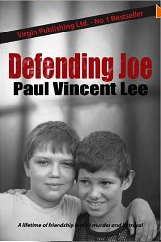 Often in a novel, alongside the protagonist, antagonist and a host of other characters, there will be an additional presence. I'm talking about the location. Sinclair Macleod's series that started with The Reluctant Detective is based in Glasgow and that's also the setting for Paul Vincent Lee's debut novel, Defending Joe. I caught up with him recently over email and put him on the spot.
Often in a novel, alongside the protagonist, antagonist and a host of other characters, there will be an additional presence. I'm talking about the location. Sinclair Macleod's series that started with The Reluctant Detective is based in Glasgow and that's also the setting for Paul Vincent Lee's debut novel, Defending Joe. I caught up with him recently over email and put him on the spot.What sets Glasgow apart for you?My debut novel, “Defending Joe”, is set in Glasgow and although that can maybe be seen as a little bit unadventurous it did make it easier to visualize scenes so it does have its advantages.
Just as can be said for any relationship, whether it be with a partner, kids or whatever…you can love something but not actually like them all of the time…and that is how I feel about Glasgow and, indeed, Scotland. But it has undoubtedly shaped me as a writer…for better or worse.
How did your main character appear and did they change from your first draft?My main character changed dramatically from the initial idea…not least in that it changed from a woman to a man and from a cop to a civilian.
What made you decide to go down the self-publication route and what have been your main lessons?I guess self-publication came about through a mixture of not getting any mainstream publishers to take me on, although Canongate were encouraging, and a drive to just move things on in whatever way I could. I certainly don’t regret the journey although it was stressful & frustrating at times especially if, like me, your I.T. skills are limited! Lesson…Just Do It.
What comes first for you - plot or character?Neither! An idea for the beginning of a story takes shape and I let things flow from there. The best thing I saw written about a story was by Stephen King who says that stories are like unearthing a skeleton…you slowly uncover it without really knowing what it is until it reveals itself to you.
What are you working on at the moment?To be honest my main focus at the moment is marketing “Defending Joe”. I know some writers claim not to be interested in sales, and I don’t quite understand that, but I am as my dream is to make an acceptable living from novel writing. That’s not to say that writing isn’t involved, but what I am trying to do is learn the “business” side while pondering the writing side.
How would you define the Glaswegian character?Funnily enough I feel there is a close link between drama and comedy in the Glaswegian psyche. Glaswegians love self-deprecating humour and laughing at the absurdity of life, which is often reflected in laughing at tragic situations.
Where can we get hold of a copy of your book?The book is available now on Kindle and will be available on Amazon at the end of the month or from my website: www.paulvincentlee.com.
Published on July 06, 2012 07:12
July 4, 2012
Don't mention the war
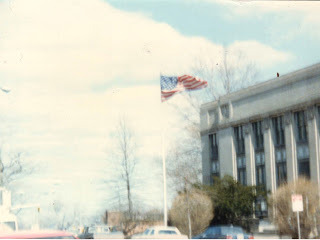 A novel beginning?I've always had mixed feelings about American Independence Day. I mean, I get it - I understand the historical and cultural significance, as it is commonly understood. And let's face it, who the heck wants to be disproportionately taxed and ruled by a foreign power from overseas?
A novel beginning?I've always had mixed feelings about American Independence Day. I mean, I get it - I understand the historical and cultural significance, as it is commonly understood. And let's face it, who the heck wants to be disproportionately taxed and ruled by a foreign power from overseas?I also know 'stupid stuff'. That John Hancock's signature on the declaration was so large that his name became a byword for a signature. Also that the Declaration was written with ink made from pokeweed.
But a deep dive into any historical period or event will likely show us the interconnectedness of cultures, nations and factions, alongside the actins of individuals. In the case of the American Revolutionary War, it was something of a global affair.
When I spent a little time over in the US, the two July 4ths I experienced were a combination of:
- Inebriated people telling me how, "We sure kicked your asses."
- Receiving consolatory pats on the back and reminders that, "We're all friends now."
- Pageantry, flag waving and celebration.
- Reflection upon what it means to be truly independent. (Hey, I never was the party type.)
- "Hey Limey, how's it feel to come second best?" (Actually, it felt pretty good - pass the tacos.)
The UK is not dissimilar to the US in many respects. We define ourselves by those times when we've been a proud nation standing up for what we believe in. And we're a little more reticent about those times when we've been less than honourable. A lot like individual people, you could say.
In our recent Jubilee public events there were critics and naysayers (do people naysay any more?) alongside those who just wanted to feel good about being British and to wave the flag without accusations of jingoism. We can neither deny nor erase history. For good or ill, everything before us has led to here. We are the inheritors of the past. Or at least, the past as we understand it.
With all - and none - of that in mind, I wish my American cousins a wonderful Independence Day and I thank them for their support, encouragement and inspiration in my writing. At the very least, I owe them a novel!
Published on July 04, 2012 01:57
June 30, 2012
Aqueducts

I was chatting over email today with writing buddy Rosen Trethivick about Kindles, ebooks and the joy of self-publishing (well, editing and formatting at this stage of the game). She asked me about my ebooks and I mentioned my e-publisher Musa.
Having passed on some useful info about KDP Select, she asked me, not unreasonably, what it is that Musa does for me. I mean, let's face it, other organisations are falling over themselves to help writers do everything independently.
I pondered that for a minute and realised that Musa do much the same as a paperback publisher, and perhaps a little bit more.
- They consider submissions on merit and they have an electronic process for their contracts. - They edit intensely and request revisions where necessary. They're not out to make friends, just good authors. (The friendship part comes later.)- They create cover artwork in consultation with the author, starting with the author's ideas.- They create, market and sell ebooks. (And plenty of them now.)- They enable all their authors to access monthly statements online and any royalties due are paid electronically each month.- They maintain a vibrant writing community. - They share marketing ideas for authors and they fly the flag for your other books too. (That's right - the ones with other publishers.)
Now, it won't have escaped your attention that I'm either very flexible in my approach to writing or else I have one face too many, seeing as how I've decided to self-publish Covenant. True, on both counts.
I did consider approaching Musa with Covenant, as it has a flourishing fantasy imprint. But I wanted to see Covenant in paperback and I wanted it to remain, as written, in British English. However, I was so impressed with their handling of The Silent Hills that they're publishing my first tween / YA book, The Superhero Club, through their Euterpe imprint in November.
Published on June 30, 2012 03:48
June 26, 2012
I've got it covered!
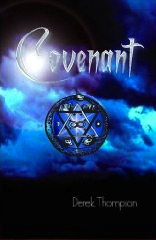 As the edit to end all edits trundles along, I'm finding that those old project management skills are worth their weight in spreadsheets.
As the edit to end all edits trundles along, I'm finding that those old project management skills are worth their weight in spreadsheets.One of the trickiest activities has been choosing the cover design. Now, thanks to the generosity of my former editor and designer at Saga Whyte Press, Annemarie Skjold, that's no longer an issue.
I was contracted to SWP in 2008, but they felt victim to the economic downturn. I always loved her cover design and I'm thrilled to be able to use it for what will be my first novel in print.
With that box gladly ticked, I can turn my attention to the 101 things that still need to be done.
These include:
- Confirm the list of people to thank.
- Complete the all-singing, all-dancing edit.
- Arrange the formatting to conform to Lightning Source's requirements.
- Format the ebook version.
- Promote, promote, promote!
- Buy large bar of chocolate to celebrate launch day (currently scheduled for Aug / Sep).
I'm also researching on the web for every scrap of useful information, and I'm indebted to Nicola Morgan's blog for this gem.
Published on June 26, 2012 04:35
June 22, 2012
Time and Tide
 One of the great things about being in touch with nature is witnessing the flow of the seasons and experiencing it in a tangible way. You can do this through the seasonal food you eat or by paying attention to what is growing in the wild. Right now, elderflower is in abundance an that can only mean one thing: elderflower champagne. What better way to celebrate the confirmed, definitive and highly likely arrival of summer.
One of the great things about being in touch with nature is witnessing the flow of the seasons and experiencing it in a tangible way. You can do this through the seasonal food you eat or by paying attention to what is growing in the wild. Right now, elderflower is in abundance an that can only mean one thing: elderflower champagne. What better way to celebrate the confirmed, definitive and highly likely arrival of summer.Nature teaches us that every growing thing, from the smallest weed to the most magnificent oak, has its time. If we're smart, we too learn to move through those cycles and to make the most of what is going on around us. The longer days lend themselves to walks in the woods and treks across the beach, just as the winter evenings (I know, I'm getting ahead of myself) draw us towards the fire and quiet reflection. (And soup!)
It is possible to write with the seasons as well - to do your outlines in spring and then create and craft your words through the summer to achieve a literary harvest come autumn time.
On a smaller scale, there are times to start new projects, times to work with what you have, and times to bring something to a conclusion. It can be strange saying goodbye to a book, to leave behind characters who may have been in your company for years. They may even have been around you for so long that their stories spill over into further books.
This sense of the rhythm and seasons of your own writing cannot be learned from books. It's an ongoing process of observation and occasionally brutal self-honesty. Knowing when to stay the course is every bit as important as knowing when to quit. And even if a project doesn't run its course as you expected it to, technology has opened up new opportunities for cultivation and harvest.
As I enter the final stage of editing my fantasy, Covenant, in preparation for formatting and self-publication later this year, I have a good vantage point from which to view the long journey here. So many adventures along the way, including some false starts and the occasional wrong turn. I'm glad I kept on tending the plot (sorry, couldn't resist it) and trimmed back where it was necessary. There's probably a book in all that somewhere too.
Enjoy your summer, whether it be in nature, in your own nature, or in the nature of your writing. And take time to rediscover the pleasure of reading (and writing) outdoors - weather permitting!
Published on June 22, 2012 09:40
June 14, 2012
The Magic of Writing
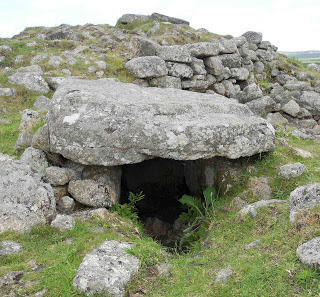 Knowledge will only take you so far...
Knowledge will only take you so far...I thought I'd take a short break from editing Covenant, my first novel (not counting I wrote while at school, which fortunately never saw the light of day). I've wrestled with some of the wordier sentences, understanding what I was trying to say but wondering whether some of those things needed to be said. Let's face it: less can be more. Imagination is more powerful than description, if you leave the right clues. (Just look at the famous shower scene from Psycho.)
So, as I've said before, Covenant deals with magic. And, when you stop and think about it, writing could also be seen as magical.
How so?
Well...
Stage magic is the art of making the impossible seem possible. The audience suspends its disbelief, and the stage magician uses finely honed skills and techniques (yes, even Tommy Cooper), to create an experience of wonder.
But, for those of you who've read any part of Covenant - or heard me talk about it - you'll know that it's not that kind of magic my book deals with. True, there are cards mentioned, but they're the other kind.
The medieval mind saw all matter as containing one or more of four elements - Fire, Earth, Air and Water. And there was the fifth, less easily defined element of Ether or Spirit. This model was a way of making sense of the world - a template of perception - and it's common in fantasy fiction, as the basis for what we could call an alternative science. Come on people, you must have read or seen Harry Potter by now.
Writing requires a balance of, and mastery over, elements too. Let's get inventive for a moment. Our elements can be labelled Plot, Characterisation, Dialogue and Pace. And our fifth element might be termed Soul. Oh, it's a hard one to define, but we always know it when we see it. Whatever the genre, if a book has that indefinable shard of brilliance, it touches us and maybe even changes us too.
Writing involves conjuring ideas out of the sky or charming them out of the trees (or wherever else we are lucky enough to find them). We invoke archetypal themes and we evoke emotional responses. We take the abstract and, within the confines of the world we create, we make something tangible, populating the domain with thinking, feeling people who may well take on a life of their own. (If not for you then for your readers.)
And if that isn't magic, I don't know what is!
Covenant
Isca has followed the faith since she was a child and it has brought her from the Settlements into the City States. Now, as a priestess, a prophecy bears fruit; she receives the tablet that will liberate her people and deliver them to their spiritual homeland. But freedom comes at a price. To keep the tablet safe until the Righteous One claims it, she must betray the faith and summon an outsider to protect it; she must break her vows and teach a heathen the path of True Will.
When a stranger appears in the city of Tarsis, in need of a hiding place, destiny turns on a single meeting. The heretic, Turor, will discover the truth about the tablet and the boy chosen to protect it. Together they will unite their believers, but divide the faith forever. The people of the exodus will risk everything to escape the world of the City States, joining Turor in his quest to find the lost Holy City of Sarrell.
The journey will take all their courage, all their trust and all the magic that Turor can wield. Along the way, secrets will be uncovered, alliances forged and broken, and two ancient powers will be reconciled. Surely, only a Righteous One could accomplish all this – but what if Turor wasn't so righteous after all?
Published on June 14, 2012 06:38
June 9, 2012
The End of the Affair
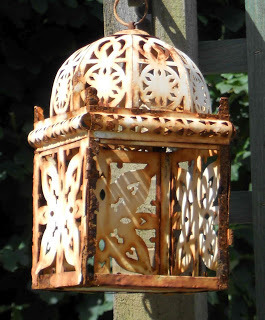
With few exceptions, most of the posts you will ever read about the practice of writing, anywhere on the Internet, will be positive. Sure, there'll be the occasional I submitted my novel to 11 agents...' but the punchline will usually be, 'and the 11th submission came up trumps'.
This post will be a little bit different.
This tale is what you might call the flip side of the coin - the side that lands in the dirt. And pretty much stays there. Except that, viewed from another perspective, it doesn't. This affair is a literary one and full of contradictions.
We'll start at the beginning. Well, not the very beginning because that took place a long time ago - in the 1980s.
My fantasy, Covenant, is a large book. It weighs in at 133,000 words and, believe me, that is the shortened version. It's a quest that involves a range of themes, both archetypal (truth, loss, justice and redemption) and esoteric (altered states of consciousness, reincarnation, and mysticism). Even for the fantasy genre, based on the feedback I've had, I'd say it's a little different.
It has been a long journey. You can find snippets elsewhere in this blog, but the facts are these:
- 20 submissions to agents.- 40 submissions to publishers, which include Indies. - Subbed in the UK, USA, The Netherlands, Denmark and South Africa
- Fastest decision time - 1 minute (no unsolicted subs at the moment, thanks).- Slowest decision time - 1 year, 3 months and 16 days (Baen Books).
- Five contracts offered. - One was solely for ebook publication.- One was for a very limited print run.- Three wanted author contributions from £1000 to £5000.- One publisher wanted me to commit to buying 150 discounted copies.
High points:- Being offered each and every one of those five different contracts. Okay, so I declined on the basis of my costs or their distribution model, but in each case - had I the available funds or the profile - it might have worked out. Bottom line? Publishing is a risky business and they wanted me to share the risk.
Low points:- My editor at Samhain, Terri Smith, approving my book and then passing away before the revised contract could be signed. Followed by the replacement editor turning my book down.- My ms or return postage not being returned by Capall Bann, and no reply to my phone call / registered letter. And this was after they'd sent me a proposal.- Saga Whyte Press falling victim to the global downturn before my launch.- The agent who wanted the 'small amount' of £70 to read my ms sample.
And after affairs, so I'm told, once the recriminations and rationalisations are little more than fading memories, there's a fresh perspective. Maybe it's not always forgive and forget, but it's learn the lesson and move on. The lesson for me was that, after years of subbing and editing, and all of the above, I decided that I don't want to do it anymore. Not with Cov. I do, however, want to see Cov in print.
It took Villayat SnowMoon Wolf Sunkmanitu, a fellow writer and photographer, less than 30 minutes to talk me through the pleasures and pitfalls of paperback self-publication. I know, from the feedback I've received, that there's a niche readership out there. And I used to have a reader group of around 30 people who received a chapter a week. So here's to the end of the affair and the onset of independence.
I aim to complete the proof edit by the end of July and commit to print in August / September. And I'm waiting to hear about using a cover design from one of my former editors. So watch this space, and if you're into esoteric fantasy epics, you're welcome to join my mailing list.
Published on June 09, 2012 08:53
June 3, 2012
Stained Glass Summer
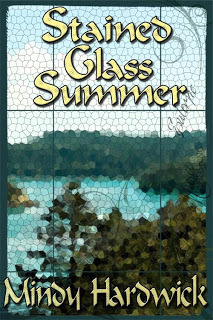 Many writers will tell you that the story chose them. There they were, having a coffee at home or dozing on a train, and then WHAM, a voice or a face or gem of an idea appears. That's how a story of mine, The Superhero Club arrived on the page, and Musa Publishing signed it up back in January for a November launch date. It's a children's / YA tale of friendship, truth and acceptance, and unlike anything else I've written before. (That's right, no one dies!)
Many writers will tell you that the story chose them. There they were, having a coffee at home or dozing on a train, and then WHAM, a voice or a face or gem of an idea appears. That's how a story of mine, The Superhero Club arrived on the page, and Musa Publishing signed it up back in January for a November launch date. It's a children's / YA tale of friendship, truth and acceptance, and unlike anything else I've written before. (That's right, no one dies!) To get to the bottom of what it means to be a YA author, I'm delighted to introduce my fellow Musa author Mindy Hardwick.
1. Do you plot your books in detail from the start or do you let them develop organically?
Stained Glass Summer developed from character. One night, a spunky, teenage girl character sat down in my blue and white striped chair and said, “Hello, my name is Jasmine. It is time to tell my story.” A year later, I began working on my MFA in Writing For Children and Young Adults from Vermont College. In that program, we worked a lot on character with the idea that plot would evolve from character.
2. Have you changed your approach to writing since the publication of your first book?Stories still start with a character, but, I have learned to do more outlining and plotting! I’ve learned a lot by attending RWA Conferences and listening to romance writers talk about what it takes to write two to three books a year—lots of outlining and plotting! I’ve also learned that with a good outline, I can work on scenes out of order. So, if I’m stuck on one part, I can move to a different part of the story 3. What drew you to the YA genre, and does it present any special challenges as a writer?My writing voice seems to fall naturally into the YA/Mid Grade genre. The topics I like to explore are teen and tween issues and my characters are young and trying to find their way in the world. One of the biggest challenges for me is I tend to write stories which are “tween.” This is a cross between the young middle grades and not quite young adult. I had a hard time selling Stained Glass Summer because of this age issue. It didn’t quite fall into either YA or MG. It was in the middle. But, I used to teach middle grades (6th-8thgrade), and I knew the story belonged to their age group.
4. Do you view high profile book series - such as the Twilight books - as positive role models for children and young adults?
Any book which gets a teen reading is great! We all like different books at different times in our lives. I think it’s important to find the right book for the right kid at the right time.
5. Are there any authors and characters that have inspired you?There are two books which inspired me as a teen and directly inspired Stained Glass Summer. Homecoming and Dicey’s Song by Cynthia Voigt. Dicey’s mother abandons her and her siblings in a shopping mall parking lot. Dicey must figure out how to get to her Grandmother’s and start a new life over. Dicey and my character, Jasmine, would be very good friends. They both have been abandoned by parents and they both have to start new lives with relatives. Both characters are resilient and know how to survive against the odds.
6. Tell us a little about your writing routine.In the morning, I answer e-mails, work on workshops, blog, and update social media. I teach six distance learning classes to educators, and they can keep me busy! In the afternoon, I write. Lately, I’ve been leaving the house to go to coffee shops or libraries. I try to go to yoga at least once a week, and I walk on our wooded trails a lot. I need that exercise to clear my mind and help me think about my stories. I find that a lot of my writing time is planning time while I am doing other things!
7. What was your journey to becoming an author at Musa?Long! I worked on Stained Glass Summer for almost ten years before I sold it. I got a lot of “almost” or “not quite right for our list.” Then, I sent the manuscript to be professionally critiqued by freelance editor, Sarah Cloots. It was after that point that the manuscript sold to Musa.
8. How would you describe Stained Glass Summer to a total stranger?Twelve-year-old Jasmine adores her photographer Father and wants to be an artist just like him. But when Dad abandons the family, Jasmine is sent to spend the summer with her Uncle on a Pacific Northwest Island. Soon, Jasmine is learning stained glass from island glass artist, Opal, and thinking she might just be developing a crush on Island boy, Cole. But, it’s not until Jasmine finds herself mentoring another young artist that she can truly let go of her Father and call herself an artist by her own terms.
9. Where can we find out more about you and your writing?
Stained Glass Summer is available at Musa Publishing, Amazon, Barnes and Noble, Itunes.
There is also a free discussion guide on my website here. And I give Skype talks about the book.
You can find me at:Website: www.mindyhardwick.comBlog: www.mindyhardwick.wordpress.comFacebook: www.facebook.com/stainedglasssummerTwitter: @mindyhardwick
10. What are you working on at the moment?I am working on a tween/upper middle grade for boys entitled, Granddad Toys. I am also working on a chapter book for elementary school kids.
Published on June 03, 2012 03:11
May 26, 2012
If...
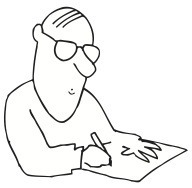 If you're self-employed, you do things for a number of reasons:
If you're self-employed, you do things for a number of reasons:- It creates income.
- It promotes your business.
- It develops your products and services.
- It develops you and your skills.
- It's fun.
- It's connected with your core values.
- It only uses resources you can commit freely (time, money or effort).
If something you're doing doesn't fall into at least one of those categories, you might want to ask yourself why you're doing it.
Published on May 26, 2012 09:46



